|
How do you start your mornings?
Since recently the first thing in the morning I do is composing new pieces for organ. I'm later sharing the music on Facebook, YouTube, on my blog here and elsewhere but now I would like to ask you if you would like to be updated about my newest compositions via email as well? I understand that my music isn't interesting to everybody who receives organ playing tips and podcasts. But in case you are curious, the following applies for you: Open any of my emails to you, scroll to the end and click "Update your preferences". You'll be taken to a new page where you can click on your interests "Organ playing" and/or "Vidas' Compositions". Also you can specify sending frequency: "Daily" or "Weekly". You can also find a new blog category "Compositions" and subscribe from there. And remember: When you create, miracles happen! Vidas
Comments
Would you like to learn In Dir ist Freude, BWV 615 by J.S. Bach from the Orgelbüchlein? I've created this score with the hope that it will help our students who love early music to practice efficiently and recreate articulate legato style automatically, almost without thinking. Thanks to Annabel Brown for meticulous transcription of fingering and pedaling from the slow motion video. Intermediate level. PDF score. 4 pages. 50% discount is valid until June 26. Check it out here This score is free for Total Organist students. Bellow is my practice video in slow motion: Some of our subscribers might know that besides improvising and composing music I like to draw Pinky and Spiky comics and post them on Steemit.
But did you know that Ausra draws every day and posts her comics on Steemit too? It's her funniest time of the day. Time to relax and enjoy herself: "When I started to do it I didn’t think that people would like it but I think there are quite a few who enjoy it as well. So I’m very glad to know that I’ve found people that enjoy my drawing and my characters." "And in terms of sort of making comics makes me feel like a child again and I like that feeling you know after being responsible for my students all the time I think it’s nice to relax and enjoy myself. My biggest inspiration is probably Tove Jansson and her drawings and recently, maybe half a year ago we bought a big book which she has her complete works of comics strips which she published in a British magazine during her lifetime." If you are curious to get a glimpse into her world, here is my interview for Steemit Art Centre with Ausra about her drawings. I hope you'll enjoy reading as much as I did when I was talking to her. Here is what Steemit artist lildebbiecakes had to say about it: "@laputis, I love all of what you do, and how wonderful it is to get to know you a little bit more. I’m so blessed you created Pinky, that lead you to Artstorm so that I could meet you there, it has been fun to become friends with you and Vidas. Ausra your artwork and music fill me with joy, I pray you’ll be able to create music 🎶 and 🎨 artwork for a very long time to come, may God bless you my friend and your family❣️" Read the full interview here and let us know what you thought. Vidas: Hi guys, this is Vidas!
Ausra: And Ausra! V: Let’s start Episode 235 of #AskVidasAndAusra Podcast. This question was sent by Ron. He writes: Hi Vidas and Ausra, Thank you guys! What a wonderful response to my email note to you. You’ve got me right, and I feel you understand my level of playing (yes, at home, and lucky that I have an organ for that reason.) I am paying attention to this, and I am going to try this ha-ha-no-longer-secret model. Yes, and I love Cesar Franck, too. What is very nice about your blog-podcast is that Ausra and Vidas are like a Socratic dialogue, and by bouncing things off of each other, so much more information comes out and is expressed. Your comments contain a wealth of information and understanding. I really appreciate this, it is very inspiring, and will keep us moving forward. Cheers, Ron V: So, this is a very pleasant comment, right? A: Yes, it is a very nice letter. It’s nice to know that people appreciate what we are doing. V: I think Ron wrote us about the question with improvisation. Remember, we talked about how you can take any organ composition and apply it as a model. A: Yes, I think we talked about it, yes. V: And Ron, apparently, participates in our improvisation contests on Steamit. A: That’s very nice. I actually enjoy his improvisations a lot. V: And he’s improving. Advancing every week. A: True. You know, if you will do that on a daily basis, you definitely will improve. It cannot be any other way. V: How many years does it take to reach perfection, Ausra? A: Well, I would say it’s never perfect. So, it takes many years. V: And even at the end it’s not perfect. A: True. V: But every day is better than the last, right? A: That’s also true. V: So that’s what we strive for—to be better ourselves than yesterday. And not necessarily to compare ourselves with others. A: True. V: Do you have this habit of comparing Ausra with the masters? A: Well, I had it before, earlier in my life, yes. I would compare myself to others. V: To whom? A: Well, other famous organists. But you know, then finally I realized that you cannot compare yourself to others, because you are not in the same situation as they were. So, it really doesn’t matter. V: They never were in your shoes? A: True. So each of us is unique with our own unique history. V: And also you unique experiences and talents. A: True. V: And, what is more important, combinations of those talents. A: That’s right, so… V: For example, a lot of people play the organ. Right? And if you compare yourself to others, you are just one in a million, or one in a hundred thousand—how many organists are playing on the Earth, I don’t know. Right? A: Right. V: But, you might have another hobby besides that. And then two hobbies combined, organ plus that other activity, you are already in the minority. Right? So, if you combine even the third activity that you are doing, then you are definitely unique on Earth, I think. Three things is more than enough to combine in order to be original. A: Yes, that’s true. Do you think it’s important to be original? V: No. I think somebody wiser than me said anyone who strives to be original never will be original. A: Interesting. V: Because originality is not the point. I think the point is something else. What is the point, Ausra? A: Well, it depends on what we are talking about, because now when you talked about originality, I started to think about modern music. V: Yeah. A: And there was at some point that you had to show something original in your composition. If you wouldn’t do that, your composition would be “bad.” V: And in certain circles, there is still this idea that you have to be original. You have to invent something. A: But, I think that so much ugly music was composed… V: Because of this. A: Because of this yes, of trying in any way to be original. V: And forgetting another concept. Not originality, but beauty. A: True! But of course, when we are talking about beauty, you know, everybody has his own understanding of what beauty is. What’s beautiful music? V: What’s a beautiful flower? Would you agree that any flower is beautiful? A: Probably, yes, maybe with some exceptions. V: Yeah, like a weed, right? A: Yes. V: But still, when the dandelions or something, when they blossom they are beautiful. A: True. But not on my lawn, probably! V: Yeah. Tell them, “Get out! Find a new home!” A: Yes, it’s true. V: Our neighbors. A: Mhm. V: So, nature is always beautiful, and a man who imitates nature in earlier days, human endeavor also wanted to express beauty in this way, too. But today, simulating nature is not the point. Right? No longer the point. A: Yes! Because now, you just take a picture if you want to simulate nature. That’s the easiest way to do it. V: But if you take a picture, and a million other people take a picture, your picture will get lost, right? Because it’s just like any other picture. Of course, you could add your own unique touch. Something that, you know, other people would not do. And that’s enough, I think, to be original. To express yourself, your own experience. A: So how would you apply it to the organ? V: To organ performance, or organ creativity? A: Both! V: Let’s say in organ performance, when you have a composition which is created many years ago by the masters, and hundreds of other people are playing the same piece, they’re not playing the same piece in the same way. A: But do you think that originality is very important when you are playing, let’s say, standard organ repertoire? V: It depends how far you can go, right? We’ve all heard those strange performances of, let’s say, standard works, where originality is too strident, Right? Too obvious. And probably it distracts you from the piece. A: But I guess the more famous you are, the more eccentric you can become. You know? If you are performing, then nobody will say, “Oh look how he played.” Because, “Oh wow, yes, he can do it, he’s a star.” Do you know what I mean? V: I know what you mean! Ton Koopman, right? A: I know! V: We went to his recital last summer in the festival here in Vilnius. And his tempi were like maybe one third too fast. A: And he’s a virtuosic performer, definitely. It was one of the most excellent performances that I’ve heard in my life. But still, some of those tempi raised for me a lot of questions. But you know, how can you doubt him? He’s star. V: He can do whatever he wants, right? A: True. V: And you and me, if we played this way…. A: I know or somebody else would do it, people would just think it’s crazy. V: But, if you did it long enough, this would become part of your brand—part of your trademark. A: Well, it’s also like Joris Verdin playing Franck. Very fast, no ritenuto at the end of a piece. Just gone, like a wind! V: Right, because he discovered something about the discrepancies with the earlier metronome and the modern metronome markings. And it’s how it is devised, this metronome. So he says that in Franck’s day, metronomes were beating faster. And that’s why Franck’s music, in his view, should sound more virtuosic. [This discussion continues in the next podcast episode. Stay tuned… And please send more of your questions. We love helping you grow.] Would you like to master Prelude and Fugue in B Minor, BWV 544 by J.S. Bach? I have created this score with the hope that it will help my students who love early music to recreate articulate legato style automatically, almost without thinking. Thanks to Jeremy Owens for his meticulous transcription of fingering and pedaling from the slow motion videos. Advanced level. PDF score. 13 pages. 50% discount is valid until June 23. Check it out here This score is free for Total Organist students. Bellow are my practice videos in slow motion: Vidas: Hi guys, this is Vidas.
Ausra: And Ausra. V: Let’s start Episode 234 of #AskVidasAndAusra podcast. This question was sent by Tomeu, and he writes, Dear Vidas, Thanks a lot for your advice about how to improvise Prelude in Bach’s style. It is very interesting and useful how the information is organized. I keep following you. Kind Regards. Ausra, I think he is talking about this 9-day or 10-day mini course about playing keyboard preludes in the style of Bach. Remember the time when we were studying in Lincoln University of Nebraska? A: Yes, I remember that. V: And in the last year, I wrote this dissertation about improvising preludes in Bach’s style. A: I remember it, yes. V: It was an experiment to take keyboard preludes out of Wilhelm Friedemann’s Klavierbüchlein that Bach created for his eldest son, and try to take them as models, as exercises to develop one’s skill in improvising a free type of keyboard-based compositions without the pedals in the Baroque style. And I did that; and then later, when I came back to Lithuania, and we started this internet online organ teaching activity, I thought maybe some of those chapters would fit into teaching, you know--not as a book, but maybe as a course. And I converted the first chapter into the free 9-day mini course. And then, the rest of the dissertation came into a longer prelude improvisation formula. So that’s how it all started. Of course, I revised and expanded this dissertation a little bit, because at first it was my own experiment with little real-life application; but then I tried it out on other people, and got feedback, you know. So...I did it like that. So I think Tomeu is talking about this type of course. A: I think you did a great job, and I’m glad that you went back to it, and revised it, and recycled it and refreshed it. Because I think it’s very valuable. V: Even though it’s not, probably, something that will enable anyone to master the entire Bach style, right? It’s just one side of how to approach beginner’s improvisation until a certain point--until you master cadences, sequences, harmonic progressions, and put them together into a coherent structure to create maybe a 2-3 minute piece. But it doesn’t talk about fugues; it doesn’t talk about chorale preludes. Things like that are too complex for this intent. A: But still, I think it’s a good beginning, you know; if you could master preludes like this to improvise a prelude like this, I think you would be ready to move forward to do other things, maybe to improvise a fugue or fughette. V: That’s what I thought, because it’s all based on harmonic foundations. If you have knowledge of sequences, cadences, and how to put several chords together, how to modulate, and maybe to steal some ideas about figuration from Wilhelm Friedemann’s Klavierbüchlein...Sometimes you can even borrow from other sources, if you are curious and playing other repertoire. That’s why we say, analyze your own pieces that you’re playing, and maybe you’ll find something worth borrowing. A: Yes, because if you take any piece, you’ll always find sequences, cadences...They will all have something similar. V: Yes, and then, you can even transpose your piece to every single key. Remember, Ausra, how much fun you had? A: Yes, transposing Handel. V: Transposing Handel! Was it fun, really? A: Yes, it was very fun. V: Would you repeat it today? After this conversation let’s do it--to 24 keys! A: Hahaha! Well you know, now, after teaching harmony and theory for so many years, I don’t think I would have trouble to transpose them in any given key. V: Actually you were my first student of that method book. A: True. V: In Lincoln. Of course, my first student was myself, but it doesn’t count, probably. But for other people I taught, you were my guinea pig. Right? Would you like to be my guinea pig again? A: No. No, I wouldn’t. V: Maybe I could be your guinea pig! A: No. V: Why not? A: I don’t like to torture others. Hahaha! V: Hahaha! A: But that’s just a joke, really. His suggestions are really worth listening to, and trying, too. V: That means a lot, to hear that kind of compliment from the closest person in the room. A: Good! V: Because she knows me inside out, right? And she knows my weaknesses and strengths...and maybe more weaknesses than strengths, right? A: Well, I know both well enough, I think. V: So, it really means a lot when you say this. So today, of course, you can choose to try out our mini course. And it’s not long; it’s just 9 days (or maybe an additional day at the end of it, for recapitulation); but it will give you a good overview of what could be done with any other keyboard prelude. This mini course is based on just 1 keyboard prelude from that Klavierbüchlein for Wilhelm Friedemann Bach. And Prelude improvisation formula, which naturally comes afterwards, deals with, I think, 15 or 16 more. 16 more--that’s why it’s a 16-week course. But you can, as we are saying, apply the same foundation you learn from those 9 beginning days to any other style, I would say--any other composer. Even if you don’t like Bach, and you still try this mini course, you will learn that you can turn the page of your favorite organ composer...Let’s say your favorite is Guilmant, ok? Or Franck, or Mendelssohn, or something from the 20th century, could be. You open that book, and you will see patterns, which could be isolated and practiced and transposed and memorized, and they will become your own. And then you collect as many patterns from other pieces of the same composer, and then you use those patterns in a different order. Right Ausra? A: Yes, that’s right. V: And you will create something similar, but something different, as well. It will be like The Lost Piece of Franck, or Long-Forgotten Organ Sonata by Mendelssohn. Right? Or the Seventh Symphony by Vierne, you know? A: True. And I think in general, while working with your improvisation course, it will teach you to study written compositions in a completely different way. I think you will be more skillful to recognize things in the real compositions--to see how the piece is put together, to see behind the composer’s mind. V: Who taught you this phrase, “how the piece is put together”? A: George Ritchie. V: Ahh. I see. You like him? A: Yes, he was a great teacher and mentor. And a friend. V: Yes. A: And he still is. V: They visited us in Vilnius many years ago. A: Yes. Not so many--a few years ago. V: A few years ago, yeah. Maybe we can visit them, too. But it’s a long flight. A: True. Too bad that Atlantic Ocean exists. We need to bring America closer to Europe. V: Yes. Maybe that legendary continent Atlantis, if it existed now, it would be much easier to cross! A: Yes. V: Excellent, guys. So, be fearless today, and try out something new, and look at written organ compositions in a new way: what could you borrow? And you will actually see for yourself that you will gain, at the end of the day, much more than simply just playing the music, right? A: True. V: You will probably start to feel a little hunger or thirst for your own creativity to develop, to flourish, little by little--in any field, not only in music. But you will want to make something which hasn’t been done before. A: That’s right. V: Thank you guys, this was Vidas. A: And Ausra. V: Please send us more of your questions; we love helping you grow. And remember, when you practice… A: Miracles happen. This conversation continues from previous podcast episode: AVA232 where David asked how often we improvise in a church service.
Listen to AVA233 here. Vidas: So yeah, we imagine that those masters were superhumans, superheroes, and in a sense, they were! Right? But, we all have that inner power to do something outside of our comfort zone, because the first step for Bach, probably, was also to surpass his own current level. He never did something twice, probably. Once he managed to do something that is working, he always tried to create something new. And this is quite scary, you know? Because, if it’s working, why change it? You could do like some of his students did, like writing all over the same type of compositions. But, if you do that, our advancements will not be as great, and a contribution to humanity. Ausra: So, that’s coming back to the original question… how much? How many times do you need to improvise? I think it’s up to you actually to decide. V: As many times as you can comfortably say that you are not sacrificing, perhaps, your site reading, also practice. Because site reading is also important. A: And the quality of the service, and as long as the congregation is not complaining about your improvisations. V: Yes. For example, when I go to Saint John’s church, when they invite me, which is very rare nowadays because they prefer guitar music and synthesizers, and just once in a while when those guitarists are not able to show up, they ask me. And when I’m able and I’m in town, then I go and play everything on the organ. Almost nothing from the score, because it’s so rare, I want to show the organ side of the service. And everyone knows that, that this is me who is playing, and this is me who is specializing in improvisations, you know? But for everyone it is different, right? Maybe David, at first, would be brave enough to improvise just once a month if he plays four Sundays. Or maybe twice a month, you know? It’s not that big a deal. You could even improvise once a week, just for one setting—for communion, you know? Or part of the communion. If communion is five minutes long or more sometimes, you could do a two minute improvisation. And then the rest of it could be hymns or service music. What do you think Ausra? A: Yes, that’s right, I think. That’s a very good suggestion. V: You don’t have to go all in, in that, for improvisations. You can just dip your toes in the water and see if it’s something you can pursue in the future—if it’s something you can envision perfecting later on in years to come—maybe in decades to come. What do you think Ausra. A: Yes, I think that’s very nice. Although don’t improvise so much that you forget to play a repertoire as well. V: That’s what I’m saying. A: You always need to find the right balance. V: Because improvisation feels your repertoire playing. You’re starting to recognize patterns in written down compositions. You’re starting to look at how the piece is put together so that you could also learn from the piece, and maybe steal some ideas and use them in your own playing. And, vice versa, when you improvise, it also helps you to play the repertoire. A: That’s right, I think it goes both ways. V: For example, remember, Ausra, when I played Passacaglia by Bach the last time for Bach’s birthday recital, A: Yes, I remember! V: and I had this faintest idea at the last minute, basically, just before the recital, I never practiced this type of playing, but I thought of playing a cadenza after the fermata towards the end of the fugue in Passacaglia where the Neapolitan chord is held, and maybe I have heard somebody do that maybe decades ago, could be. Or maybe I heard that done in other pieces. But, I’d never done this before in Passacaglia. What was your reaction, Ausra, without complimenting me too much. A: Well, I was surprised, I was shocked a little bit! I liked it. It was so dramatic that it almost made me smile. V: And, of course, since I’d never done this before on that piece, I had to come out of this cadenza somehow skillfully, and I didn’t! You know? Anyone who heard the recording might have felt, maybe, that I was searching for the right arpeggio or the right final note to finish the flourish. But I didn’t panic, I found that note, it wasn’t how I would do in the future, and actually, I did practice for a couple of weeks later on, this Passacaglia, for another performance, and I played this cadenza every time something different. And I don’t know which version was better! So you could add to existing organ compositions, too, if you learn this style and skill. A: Yes, because sometimes cadenzas are risky, because if they will be completely out of style you might ruin the entire piece. V: Remember we heard in our philharmonic hall... A: Yes, that’s what I thought about.. V: written down cadenza for what? For Mozart’s piano concerto. A: Yes. But it was a professional composer who did it, and actually he’s quite famous in Lithuania, and he wrote a cadenza in his style, completely out of Mozart’s style, and I think it was quite disgusting, at least for my taste. What do you think? V: Yes and no. You know, it’s so surprising, it actually was shocking but… A: I felt like you are eating soup and you suddenly find a worm in your soup, or a fly. V: What if you like worms? A: Well, I don’t! V: Then this is like a delicacy, right? A: Ooy!!!! Yuck!!! V: Yuck! Nice! So guys, be fearless, basically. Whatever you do, you will not be as good at the beginning as later on. If you have played organ repertoire for years, and now want to dip your toes in improvisation, you will inevitably play worse than repertoire. And you will feel “Oh, I’m not good, I shouldn’t even try.” Right? That’s what I thought at the beginning. And, in fact, somebody wrote about my improvisations, that… how’d they say? A: “Essentially very ugly...in places” V: “Essentially very ugly in places” after one competition. You see? So after this comment, somebody with poor self esteem might have stopped playing altogether. A: Yes, but now that man is dead who commented on you like this, but you are still alive and still improvising. V: Exactly. So, continue practicing everyday, even as little as 15 minutes, and in one year, you will probably see a miracle happen, right? It’s a nice ending of our conversation, because remember, when you practice, A: Miracles happen! Would you like to master Fugue in C Minor, BWV 575 by J.S. Bach? I have created this score with the hope that it will help my students who love early music to recreate articulate legato style automatically, almost without thinking. Thanks to David Poole for meticulous transcription of fingering from the slow motion video. Intermediate level. PDF score. 5 pages. 50% discount is valid until June 20. This score is free for Total Organist students. Bellow is my practice video in slow motion (for manuals only): Vidas: Hi guys, this is Vidas.
Ausra: And Ausra. V: Let’s start Episode 232 of Ask Vidas and Ausra podcast. This question was sent by David. He writes: So...I keep hearing you and Ausra saying to improvise for service music during communion etc. How often do you improvise for a service? Every week? Once a month? That certainly seems much more doable than learning 27 pieces a month in the beginning... Though once the hymns are all learned, it would reduce to 11 per month to not repeat for 1 year. V: That’s a very interesting question, right Ausra? A: Yes, and actually who could answer it, how much do you need to improvise. V: I think it depends on person's preferences and motivation to improve improvisation skills, right? A: True. V: Because when you improvise in public like for church service setting you are basically practicing failing in public. This is something that everyone should internalize right now because you’re improvising not everything is perfect like printed out score, right? If you had a chance to go back and transcribe what you have improvised you would certainly change many things. And I found that during one hour of my non-stop improvisations I usually improvise enough quality material to be worth to put down on paper for about five minutes. A: True. V: When you practice for an hour you imagination comes up with enough quality music for three, maybe five minutes. Not every not you play is a masterpiece. A: True and it probably shouldn’t be. V: No. Of course. It’s a practice so even though we are not perfect when we play in public it doesn’t mean we should only play those five minutes because we don’t know which five minutes will be good. A: And you know I think why I suggest you to improvise during the communion especially because you never know how long communion will take. For sure. Especially if you are in the Catholic Church you never know how many people will show up, how many of them will go to take communion. V: But in the Protestant Church just as well. A: Well yes, but I think it is probably easier to get communion in the Protestant Church so basically everybody in church goes to communion. Not the same case with the Catholics. You have to confess to receive communion. So, not everybody likes to do it so not everybody goes to communion. And because of that you never know how long it will take. I found myself quite a few times when I picked up a piece and I finished playing it and I still saw that the church is full and a hundred people are waiting for communion. So, then what to do? Repeat that piece again, sightread the next one or do whatever. V: It’s good if you have really great sightreading skills but it takes years to develop it at this level, right? A: True. V: How many years have you been playing keyboard? Since... A: Since the age of five. V: Five. Right? And your first church position you received was when? A: Well, second year of Academy of Music. V: So you were like twenty years old maybe. A: Well no, nineteen. V: Nineteen. Nineteen minus 5. Fourteen years of practicing keyboard. At that level, yes, you could sightread a lot of things. So the thing we suggest sometimes is to improvise, not necessarily even based on the hymn, it’s a very nice practice and we found out that it works and people who would do it like it, to improvise based on just four notes. Right? A: True. V: We are holding every Monday, Secrets of Organ Playing Improvisation Contest and people submit entries based on the theme and so far we did come up with four note themes like tetrachords maybe. Not necessarily in that order. Could be any other order with sharps, with flats, and people are free to use those notes in any order, in any rhythm, meter, registration, octave, with pedals or without pedals, basically to make it interesting and to play non-stop for maybe two to ten minutes. After a while it might get boring so with four notes you don’t really play a long piece, right? But you have to switch something to make it still interesting. A: Yes, and I am amazed and surprised that actually it works and it sounds quite nice. V: Yes, people who do it, who send those entries to Steemit, to dSound platform it’s an amazing practice. And they get rewarded for that too. So, anybody can do that at church. Even a beginner, right? Who cannot really play four part harmony with hymns. A: Yes, because it’s really not such a hard thing to control four notes. V: Four notes, yeah. It does not have to be fast, can be slow, could be two voice texture with maybe one long pedal note once in a while. A: Yes. V: So that’s how beginners could start making up improvisation in the church service setting during communion, during prelude, if you are more maybe advanced you could play postlude too, playing louder and a little bit faster, maybe more energetic. Not necessarily very fast but energetic. So maybe louder registration with principal chorus, mixtures, maybe reeds to cover people’s talking. A: Yes, that’s right. V: So Ausra what do you think stops people from improvising, lack of knowledge or lack of bravery? A: I would say probably the second thing is more common. What do you think? V: I would say both because a lot of times people say I don’t know how to improvise and even after hearing this conversation they probably won’t believe it that it’s possible to create a quality interesting piece on the spot based on the four pitches alone. A: I think we would need to hear those improvisations that we hear on the Steemit platform. V: And we are sharing every Monday the winners. A: I think it would inspire them to try. V: Definitely. And it also brings out something which is missing in our lives, this creativity, you know. If we only play music that was composed hundreds of years ago or maybe not so long ago, but by the masters, by semi-gods let's say, just Bach you know who probably didn’t eat at all, he didn’t sleep. Imagine that he wrote his music with pen. A: Remember when he went to Halle to compete for a church position and he wrote that cantata in his hotel room. Remember that receipt that he received for all the food that he ate and all the drink that he drank. It was a long list. V: And he created a cantata in that week plus probably some other music too. [Our discussion continues in the next podcast episode] Secrets of Organ Playing Improvisation Contest Week 7 is open. The deadline is Monday, June 18 at 12:00 PM UTC.
Here are the details for entering. Hope to see you on the inside! Congratulation to the winner of the previous week! Please click here if you want to hear the improvisation. |
DON'T MISS A THING! FREE UPDATES BY EMAIL.Thank you!You have successfully joined our subscriber list.  Photo by Edgaras Kurauskas Photo by Edgaras Kurauskas
Authors
Drs. Vidas Pinkevicius and Ausra Motuzaite-Pinkeviciene Organists of Vilnius University , creators of Secrets of Organ Playing. Our Hauptwerk Setup:
Categories
All
Archives
April 2024
|
This site participates in the Amazon, Thomann and other affiliate programs, the proceeds of which keep it free for anyone to read.
Copyright © 2011-2024 by Vidas Pinkevicius and Ausra Motuzaite-Pinkeviciene.
Terms of Service and Privacy Policy
Copyright © 2011-2024 by Vidas Pinkevicius and Ausra Motuzaite-Pinkeviciene.
Terms of Service and Privacy Policy

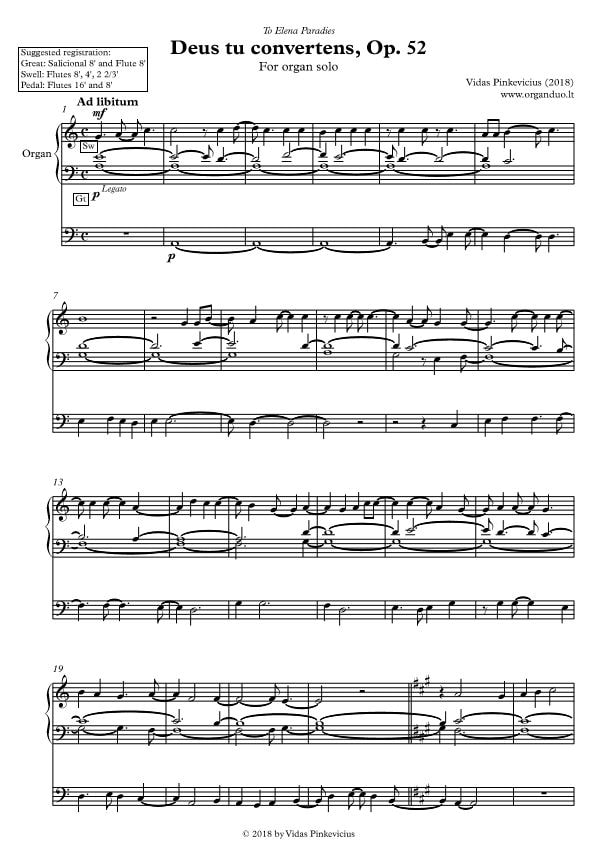
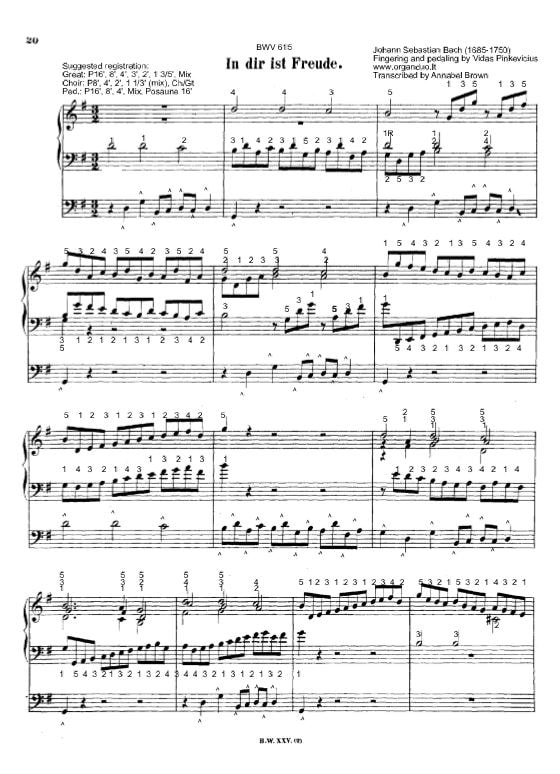

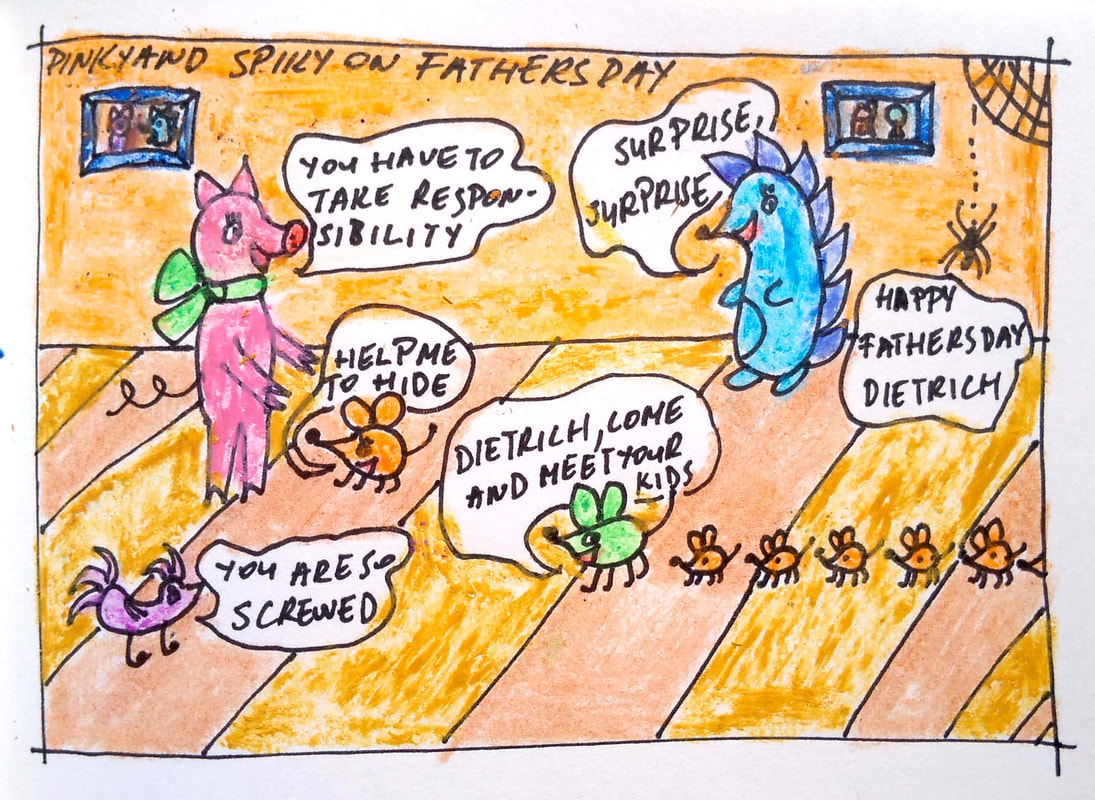
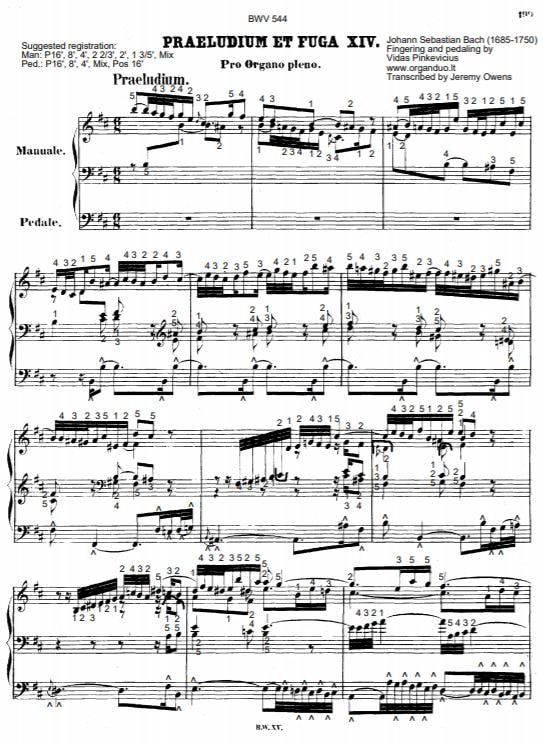
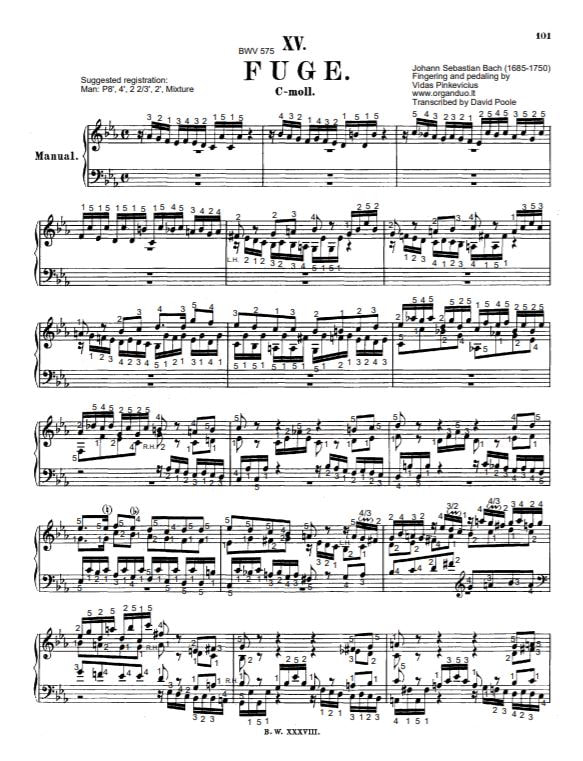



 RSS Feed
RSS Feed